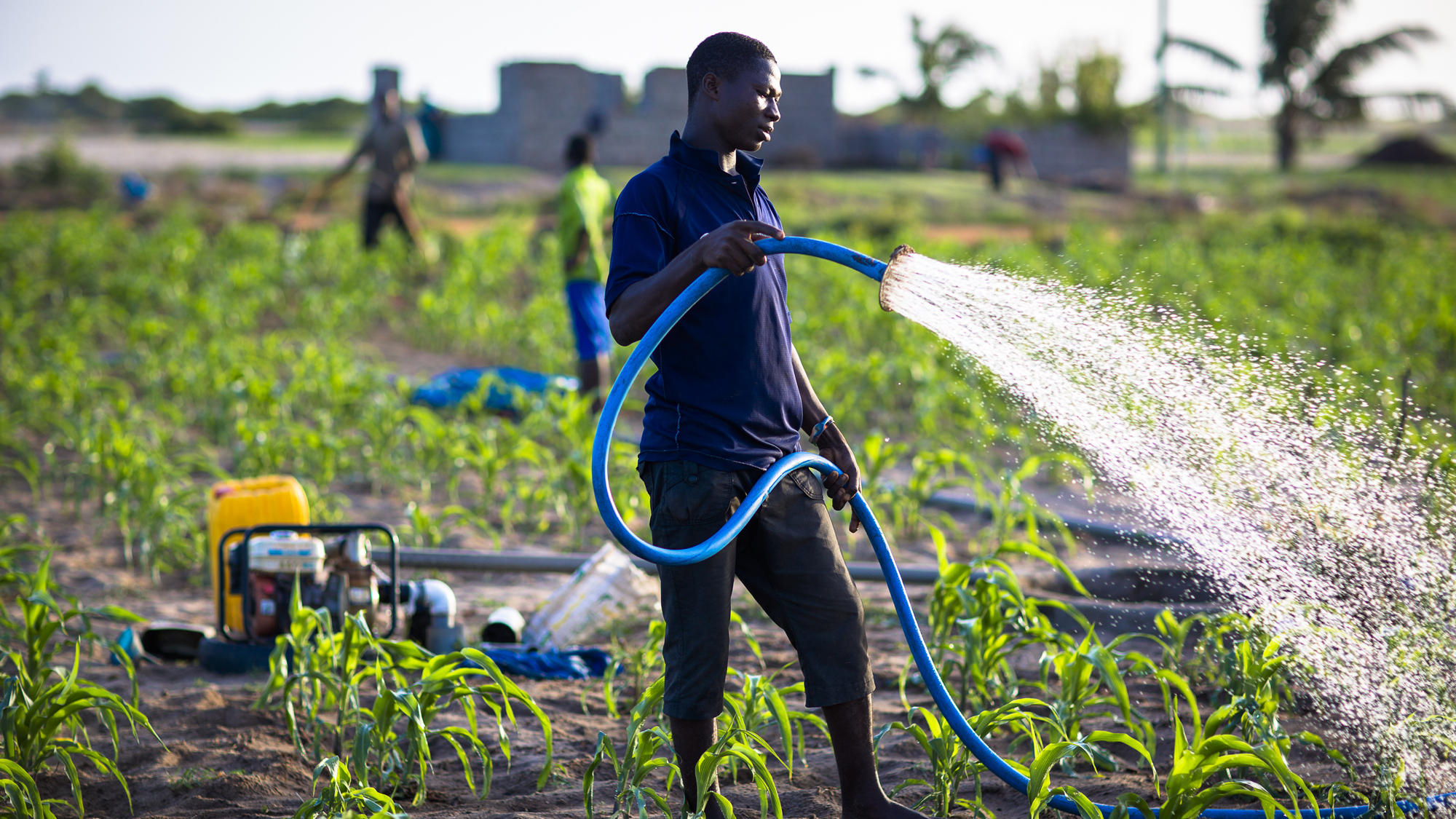Spotlighting Ghana’s Agribusiness and linking them with viable private investment opportunities remains a challenge. Successive governments have sort to drive their own agenda in boosting agribusiness in Ghana but less emphasis has been placed on long-term plans to achieve growth in the sector.
According to Trading Economics, Gross Domestic Product from Agriculture in Ghana increased from GHS 7.6 million in 2015 to GHS 7.8 million in 2016. GDP from Agriculture in Ghana averaged GHS 6541.21 million from 2006 until 2016, reaching an all-time high of GHS 7790.18 million in 2016 and record low of GHS 5322 million in 2007.
With the swings in growth in the sector, it’s evident that government needs to pay particular attention to this sector which promises to be the game-changer for the local economy. Food security, employment, reducing poverty among the rural folks, resilient local economy is some of the benefits which can be derived from supporting agribusiness in Ghana. It holds the key to socioeconomic transformation of the local economy.
Financing businesses remains a challenge in Ghana and agribusinesses have not escaped this but much needs to be done in financing agribusinesses since agriculture still remains the main stay of the local economy. Economically active population in agriculture in Ghana was reported at 6,394,000 in 2012, according to the World Bank development indicators.
Sydney Casely-Hayford who is a financial analyst and has consulted for USAID FINGAP in the past, advise that banks should understand the business of agriculture. He believes the lack of understanding of the business by banks contributes to the lack of support players in the value chain of agribusiness get from the local banks. This belief is similarly shared by Charles Owusu, Head of Credit at First Allied Savings and Loans, who also believes banks need to do more than just granting loans to farmers, “banks need to get on the ground and learn at first-hand what the challenges are to be better placed at supporting agribusiness in Ghana,” he adds.
According to Ghana’s Medium Term Agricultural Sector Investment Programme (METASIP), 2011 to 2015 (and updated plan 2016-2020) the Government of Ghana is aiming to generate three billion euros (€3 billion) from the export of non-traditional products by 2017. There is also increasing demand for non-traditional commodities-fruits and vegetables from Ghana to the European Union (EU) and United States’ markets. But these targets need critical support in the form of financing for the players in the value-chain of agriculture to deliver.
Ways forward
Risk Sharing
There should be some risk sharing mechanisms in place to safeguard the players in the value chain who are Small Medium Enterprises. Some government support for community banks who support agribusiness to mitigate some of the risks will go a long way in making the sector appealing for financial assistance from financial institutions. Banks supporting agribusiness and general agricultural activities should be rewarded and given some incentives to encourage others to give credit to the various stakeholders in the value chain based on the volume and effectiveness of lending and its impacts.
Technical Services
Also, some technical facilities should be in place to support the stakeholders in the value chain. It’s refreshing to hear the government through the minister of finance mention that they are going to engage the youth in extension services. Farmer groups can be placed in clusters to support from these technical services.
Insurance
Insurance is one major component which should be looked at again in growing agribusiness in Ghana. Insurance products should be developed and deployed appropriately for agriculture to lower the risks faced by smallholder farmers and the various stakeholders in the agribusiness value chain. The insurance cover should protect both yield losses and financing support. The various agric-related funding insurance like GAIP is still very expensive at 10% of the credit amount a farmer takes. It would only add to the burden of cost of financing to the ordinary farmer. One is not too sure how farmers see the EXIM Guaranty insurance for farmer either. The insurance products for agri-lending should be affordable to the farmer.
Credit: Ghana Talks Business || news@ghanatalksbusiness.com



